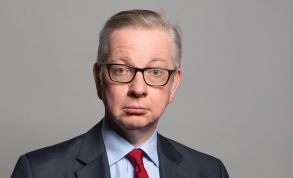Concern over 2022/23 social care and public health funding
 In a statement on the financial settlement for English local authorities, levelling up secretary Michael Gove (pictured) said the extra funding of £1bn for social care would allow councils to improve conditions for carers and those in need. A further £162m will be allocated to help councils and the social care sector prepare for adult social care reform, ensuring the system is fit for future generations, he added.
In a statement on the financial settlement for English local authorities, levelling up secretary Michael Gove (pictured) said the extra funding of £1bn for social care would allow councils to improve conditions for carers and those in need. A further £162m will be allocated to help councils and the social care sector prepare for adult social care reform, ensuring the system is fit for future generations, he added.
The extra £1bn is made up of an additional £636m for the social care grant, an inflationary uplift to the improved better care fund worth £63m (raising the total to £2.14bn), a 1% adult social care council tax precept, and flexibility rolled over from last year. Social care core spending will total almost £2.35bn in 2022/23.
Local authorities expressed some concerns about the social care settlement. Local Government Association chair James Jamieson welcomed the overall settlement for council funding, but was disappointed the government had not heeded a call for additional funding for adult and children’s social care.
‘Councils are also increasingly unconvinced that the £5.4bn allocated for social care through the new health and social care levy this year will be sufficient to fund adult social care reforms,’ he added.
In the integration white paper published on 9 February, the government called for greater use of pooled budgets and aligned funding to bring health and social care closer together.
The ring-fenced public health grant to local authorities will total £3.4bn in 2022/23, providing each with a 2.81% cash uplift, according to Maggie Throup, the minister for vaccines and public health.
In a written statement, she said the 2021 spending review maintained the grant in real terms. ‘This will enable local authorities to continue to invest in prevention of ill health and essential frontline services like child health visits, drug treatment and sexual health services,’ she added.
The public health grant was part of a wider package of measures, including £300m over the spending review period to tackle obesity, £170m to improve the start for life family support scheme, and £560m to increase the quality and capacity of drug and alcohol services.
However, Jim McManus, president of the Association of Directors of Public Health, said: ‘Given the ongoing pandemic pressures, service backlogs and increasing need, these allocations are effectively a cut to public health funding. There is an increasing dissonance between the government’s warm words on levelling up health and the investment it is willing to make. This tiny increase won’t hold back the tide of rising inflation, rising service pressures and ambitious policy plans.’
While directors of public health remained committed to reducing health inequalities, the government’s commitment had apparently waned, Professor McManus suggested.
‘Additional funding for weight management and substance misuse services is positive and will make a difference. However, it is hard not to conclude that this is a missed opportunity to set an ambitious new course for public health funding, which has been cut, cut and cut again over the last decade.’
Related content
The Institute’s annual costing conference provides the NHS with the latest developments and guidance in NHS costing.
The value masterclass shares examples of organisations and systems that have pursued a value-driven approach and the results they have achieved.